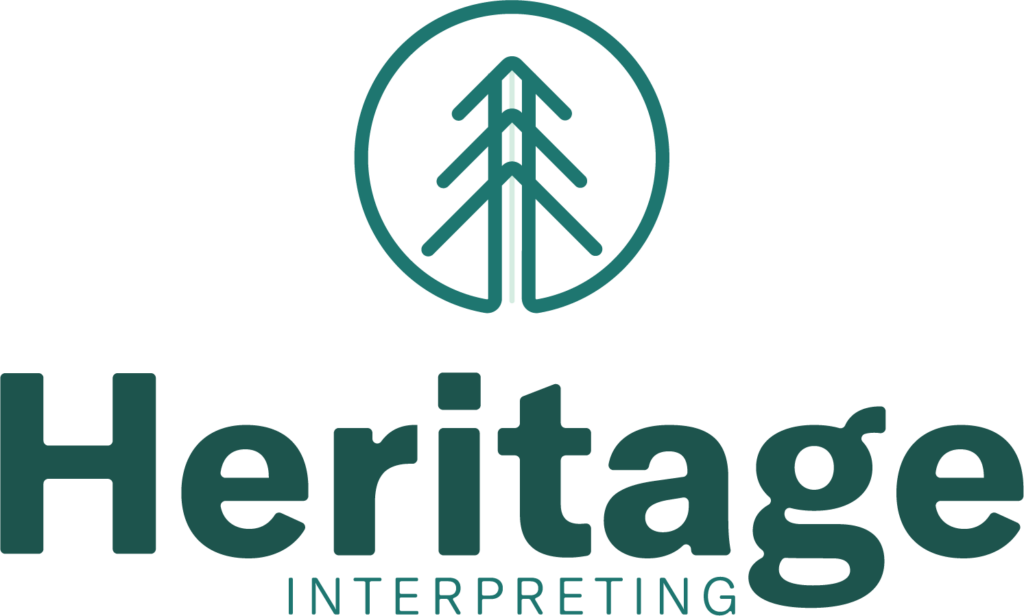As a professional interpreter, your responsibility extends beyond merely interpreting – you must also embody the qualities of an ally, team player, and effective communicator. This article aims to educate sign language interpreters on the importance of allyship, positive teaming approaches, prioritizing excellent interpersonal skills, being open to receiving feedback, welcoming growth opportunities, self-care, mentorship, and maintaining accountability. By embracing these principles, you will enhance your professional development and contribute to a more inclusive and supportive environment for all.
Understanding Allyship
Allyship is the practice of actively supporting marginalized communities and promoting social justice by challenging systemic barriers. As a sign language interpreter, your allyship should extend to the Deaf community, your colleagues, and the individuals you work with.
To be an effective ally, consider the following:
- Educate yourself on Deaf culture, history, and linguistic rights. Attend workshops, webinars, and read literature related to the Deaf community.
- Recognize and challenge your own biases and assumptions. For example, be aware of audism – the discrimination against Deaf or hard-of-hearing individuals – and work to dismantle it.
- Advocate for the rights of the Deaf community in various settings, such as educational institutions, workplaces, and public events. For instance, you could promote the use of captions in multimedia content or support Deaf-led initiatives.
- Show empathy and understanding to those with different experiences than yours by actively listening and validating their perspectives.
Building Trust and Establishing Rapport
A crucial aspect of being a successful sign language interpreter is building trust and establishing rapport with both the Deaf community and your colleagues. Trust and rapport are the foundation for effective communication and collaboration, and can significantly impact the quality of your interpreting work.
To build trust and establish rapport:
- Demonstrate consistency in your work by being punctual, prepared, and reliable. Consistency builds trust over time and shows your commitment to your profession and the people you serve.
- Show genuine interest in the people you interact with, asking open-ended questions, and actively listening to their responses. This helps create a sense of connection and understanding.
- Be respectful and maintain professional boundaries, ensuring that your interactions are appropriate, confidential, and respectful of individual privacy.
- Develop your cultural humility, recognizing the limits of your own understanding and the need to learn from the experiences and perspectives of others.
Embracing Positive Teaming Approaches
Collaboration is key to successful interpretation. By embracing positive teaming approaches, you can create a supportive and efficient work environment for everyone involved.
Here are some strategies to implement:
- Communicate openly and honestly with your colleagues. Establish clear expectations and goals from the start to ensure everyone is on the same page.
- Share expertise and knowledge by offering your peers constructive feedback, tips, and resources to your peers.
- Foster a collaborative atmosphere by celebrating the successes of your team members and acknowledging their contributions.
- Encourage regular check-ins and debriefing sessions to discuss challenges, accomplishments, and areas for improvement.
Prioritizing Excellent Interpersonal Skills
Strong interpersonal skills are essential for sign language interpreters.
To prioritize these skills, focus on the following:
- Active listening: Pay attention to both implicit and explicit cues, and ensure your understanding by asking clarifying questions.
- Emotional intelligence: Develop self-awareness, empathy, and adaptability to better understand and respond to the emotions of others.
- Conflict resolution: Learn to navigate conflicts professionally and constructively, seeking to find mutually beneficial solutions.
- Cultural competence: Understand the diverse backgrounds and experiences of the people you work with, and adapt your approach accordingly to respect and accommodate their needs.
Being Open to Receiving Feedback
Receiving feedback can be challenging, but it is an essential part of professional growth.
Embrace a growth mindset by:
- Actively seeking feedback from your colleagues, supervisors, and clients. Encourage them to share their thoughts on your performance and areas for improvement.
- Viewing feedback as an opportunity to learn and grow, rather than as a personal attack or criticism.
- Reflecting on the feedback you receive and identifying actionable steps to address the areas for improvement.
- Maintaining a feedback journal to track your progress and revisit insights from previous feedback.
The Importance of Accountability
Accountability is vital for maintaining trust and credibility as a sign language interpreter. Demonstrating accountability means taking responsibility for your actions, acknowledging your mistakes, and working to make amends.
To foster accountability:
- Own your mistakes and apologize when necessary. Recognize that errors are part of the learning process and provide an opportunity for growth.
- Develop a personal action plan to address areas for improvement, setting specific goals and timelines.
- Continuously reflect on your work and seek opportunities for professional development, such as attending workshops, conferences, and training programs.
- Maintain open communication with your colleagues and clients, ensuring transparency in your work and providing regular updates on your progress.
Embracing Change and Adaptability
As a sign language interpreter, you will inevitably encounter various challenges and changes in your professional journey. Embracing change and adaptability is crucial for staying relevant and effective in an ever-evolving field.
To cultivate adaptability:
- Stay informed about new developments, technologies, and trends in the field of sign language interpreting, such as evolving language usage or emerging platforms for remote interpreting.
- Be open to exploring different settings and areas of expertise. This will not only broaden your skillset but also offer diverse perspectives and experiences that can enrich your overall practice.
- Develop a problem-solving mindset by approaching challenges with curiosity, creativity, and flexibility. Seek innovative solutions, and learn from both successes and setbacks.
- Network with other professionals in the field, exchanging ideas, experiences, and insights. Building a strong professional network can provide valuable support, inspiration, and opportunities for collaboration.
Self-Care and Resilience
Sign language interpreting can be both physically and emotionally demanding, making self-care and resilience critical components of your professional journey. By prioritizing your well-being, you can better serve others and maintain a sustainable and fulfilling career.
To promote self-care and resilience:
- Recognize and manage stress by implementing stress reduction techniques such as mindfulness, deep breathing, or physical exercise.
- Set realistic goals and expectations for yourself, avoid over-commitment, and maintain a healthy work-life balance.
- Seek support from friends, family, and colleagues when needed.
- Engage in activities that promote physical, emotional, and mental well-being, such as regular exercise, healthy eating, and sufficient sleep.
- Create a self-care routine that includes hobbies and interests outside of work, allowing you to recharge and maintain a sense of balance in your life.
- Reflect on your accomplishments and progress regularly, celebrating your successes and acknowledging your growth, even in the face of challenges.
Mentorship and Lifelong Learning
As a sign language interpreter, embracing lifelong learning and seeking mentorship can significantly contribute to your professional development and success. Engaging with experienced professionals and continuously updating your skills ensures you stay at the forefront of your field.
To foster mentorship and lifelong learning:
- Seek out mentors and role models within the interpreting community who can provide guidance, support, and valuable insights from their experiences.
- Attend professional development workshops, conferences, and seminars to stay current with new techniques, research, and best practices in sign language interpreting.
- Pursue additional certifications or degrees that can enhance your qualifications and expand your areas of expertise.
- Engage in reflective practice, regularly assessing your performance, identifying areas for growth, and developing strategies to improve your skills.
Conclusion
Remember that growth is an ongoing process, and continuously striving to improve in these areas will only strengthen your skills and relationships within the field. Stay committed to learning, self-reflection, and collaboration, and you will continue to make a positive impact as a sign language interpreter and an invaluable ally to those you serve.


